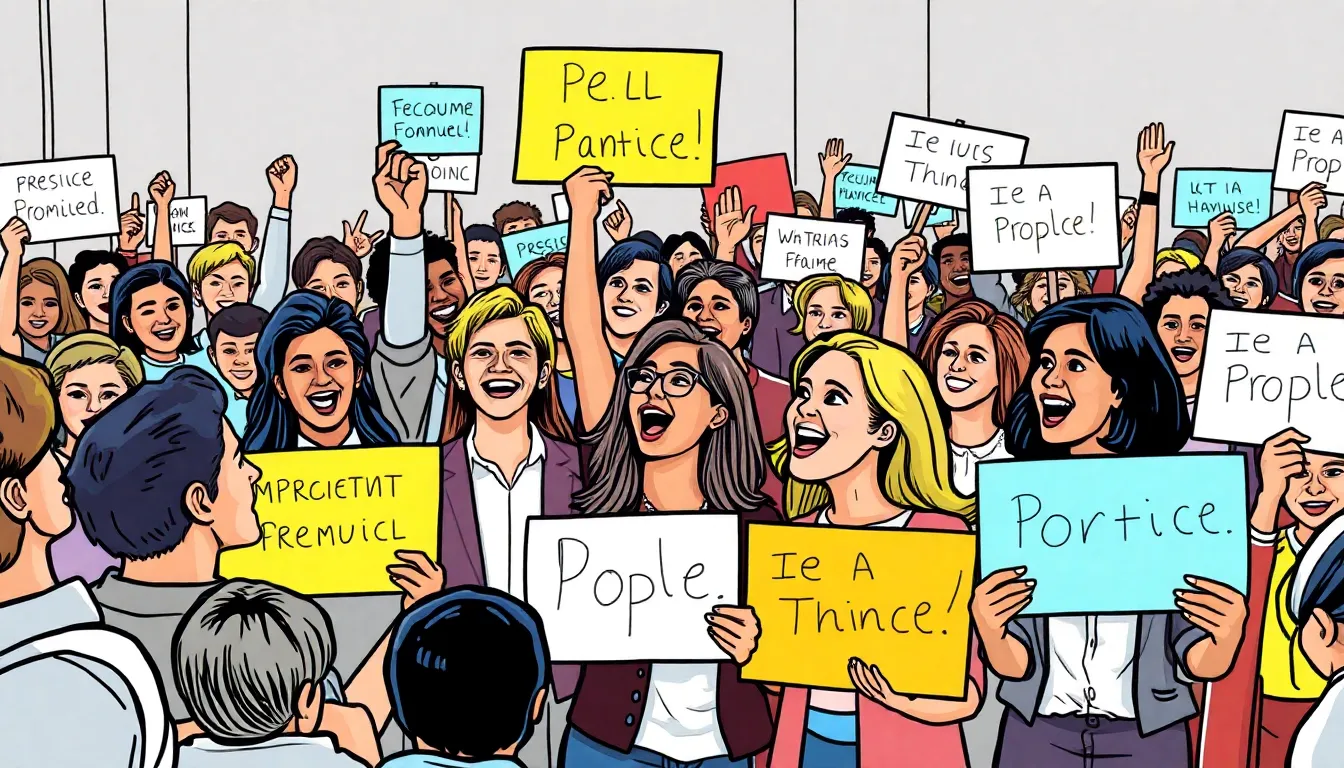Domestic politics might sound like a snooze-fest, but it’s the wild rollercoaster ride of governance that affects every aspect of daily life. From the latest debates that feel more like reality TV showdowns to policies that can change the price of your morning coffee, it’s a world where drama and decision-making collide.
Table of Contents
ToggleOverview of Domestic Politics
Domestic politics encompasses the activities and policies that govern a nation. It significantly influences people’s daily lives, from economic conditions to social services. Political debates arise frequently, with leaders discussing pressing issues that affect communities directly. These discussions often resemble reality television, capturing public attention and sparking passionate opinions.
Legislative bodies, such as Congress or Parliament, play crucial roles in shaping these policies. Through laws and regulations, they determine how resources are allocated. Decisions made here impact aspects such as education funding, healthcare access, and infrastructure development. Public opinion often sways political stances, creating a dynamic environment where various stakeholders, including citizens and interest groups, engage actively.
Voting provides citizens with a voice in domestic politics. Elections bring issues to the forefront, allowing individuals to express their preferences. Participation can be high or low, depending on the political climate and perceived importance of the issues. Recent elections have showcased the power of grassroots movements to shift traditional political narratives.
Governance involves numerous challenges, including balancing competing interests and addressing public grievances. Policy responses often require collaboration between diverse political factions. Such partnerships can either enhance or hinder effective governance, highlighting the importance of negotiation and compromise.
Domestic politics encapsulates the mechanisms that shape a nation’s future. Daily events reflect broader political trends, revealing the interconnectedness of governance and citizen engagement. Understanding these dynamics fosters informed dialogue and civic participation among the electorate.
Key Players in Domestic Politics

Domestic politics features various influential entities that shape governance and public policy. Recognizing these key players provides insight into the functioning of political systems.
Political Parties
Political parties serve as essential vehicles for political representation, aggregation of interests, and mobilization of voters. Major parties often dominate the landscape, with unique platforms addressing critical issues. They participate in elections, impact legislation, and influence public opinion. Smaller parties contribute diverse perspectives, prompting larger parties to adapt.
Independent candidates sometimes emerge, reflecting niche concerns that mainstream parties may overlook. Each party’s success hinges on its ability to resonate with voters, making communication and outreach vital. Active engagement in local, state, and national elections enables parties to shape political outcomes significantly.
Government Institutions
Government institutions play crucial roles in crafting and implementing policies. Legislative bodies are fundamental in debating and passing laws that dictate resource allocation. They also provide oversight of executive actions, ensuring adherence to democratic principles.
Executive branches enforce laws while setting policy agendas, impacting various sectors, including healthcare, education, and infrastructure. Judicial systems uphold the rule of law, interpreting legislation and resolving disputes that arise within the legal framework. All institutions must collaborate effectively to address public grievances and ensure governance reflects citizens’ needs. This interplay among institutions forms the backbone of a responsive and responsible political system.
Major Issues in Domestic Politics
Domestic politics frequently involves crucial topics that shape society. Key issues can include economic policies and social justice initiatives.
Economic Policies
Economic policies significantly affect citizens’ lives, governing aspects like taxation, spending, and regulation. Decisions about fiscal measures often prioritize job creation and stimulate growth through various programs. As these policies evolve, they address challenges such as income inequality and unemployment rates. Many citizens engage in dialogue about the impact of budget allocations on essential services. Policymakers focus on balancing growth while ensuring sustainability. Research shows that effective economic planning can lead to higher living standards, emphasizing the need for responsible governance.
Social Justice
Social justice represents another vital aspect of domestic politics, advocating for equality and human rights. Movements for civil rights and equality often gather momentum, reflecting societal demands for change. Inclusivity in policy decisions ensures that marginalized communities receive fair treatment. Debates around issues like healthcare access and education equity highlight the urgency to address systemic inequalities. Advocacy groups play a pivotal role in shaping public discourse and influencing legislation. Stakeholders must prioritize these issues to reflect the values of a diverse society.
The Role of Media in Domestic Politics
Media plays a vital role in shaping domestic politics by informing the public about key issues. News outlets, both traditional and digital, serve as platforms for political discourse and debate. Coverage of political events influences public opinion, impacting how citizens perceive candidates and policies. Moreover, social media platforms allow for rapid dissemination of information, facilitating viral discussions that can sway electoral outcomes.
Journalists hold significant power in determining which stories receive attention. Investigative reporting exposes government actions, fostering accountability among political leaders. Through fact-checking, media organizations help clarify misinformation, providing citizens with accurate data to guide their opinions. Citizens increasingly rely on diverse media sources to stay informed, making media literacy essential in navigating the political landscape.
Political advertisements utilize media to shape voter perceptions during election cycles. Campaigns strategically target their messages to specific demographics through various channels, enhancing engagement with potential voters. The visual nature of media content often resonates more powerfully than print, creating a lasting impact.
Media’s role extends beyond information dissemination to include advocacy. Many outlets champion social causes, influencing public discourse on issues like healthcare, education, and climate change. By highlighting marginalized voices, media can shift narratives and draw attention to societal inequalities.
Media functions as a crucial player in domestic politics. Its influence encompasses shaping public opinion, promoting accountability, and advocating for critical social issues. Each element contributes to a dynamic political environment where citizens actively engage in governance processes.
Domestic politics is a vibrant and essential aspect of society that shapes everyday life. It drives conversations around critical issues like economic policies and social justice while engaging citizens in meaningful dialogue. The interplay between political parties, government institutions, and the media creates a dynamic landscape where public opinion matters. As citizens become more involved in the political process through voting and advocacy, they help define the future direction of their communities. The excitement of domestic politics lies in its ability to reflect societal values and aspirations, making it a crucial component of a functioning democracy.





